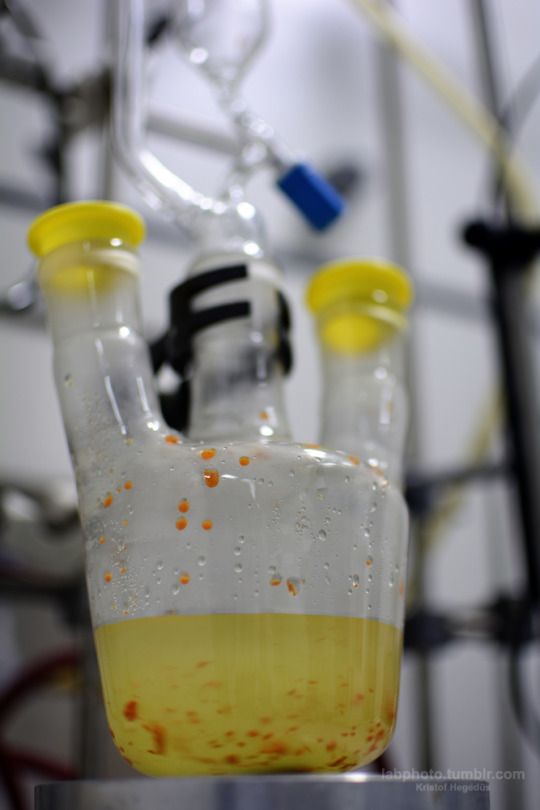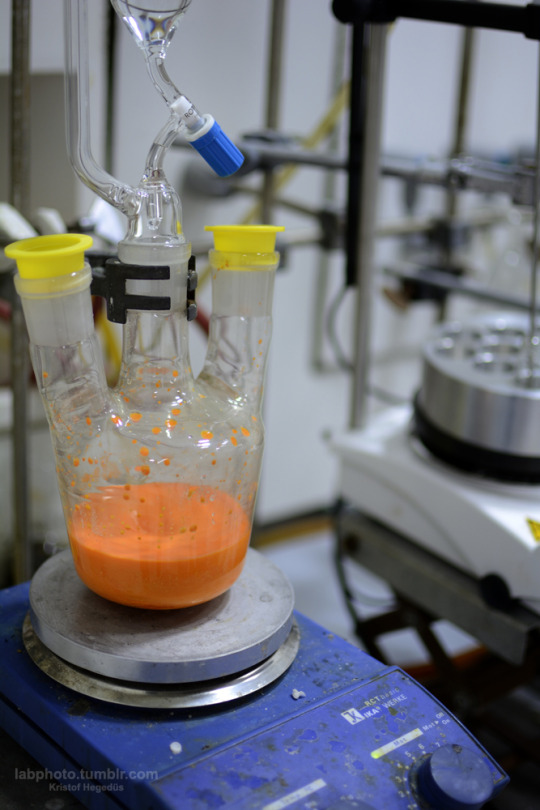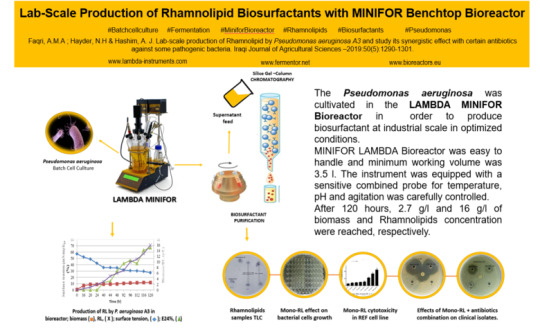Text

The Potential of #Microbial Ecosystems: Excited to dive into the world of #Bioreactor #Fermenter and its role in the Development of Efficient Biocatalysis within #BioCarriers! #ScienceProgress doi.org/10.1016/j.jhazmat.2023.131514 www.lambda-instruments.com/news/detail/creating-a-microbial-ecosystem-in-the-bio-carrier-harnessing-the-power-of-the-lambda-minifor-biorea/
0 notes
Text

Fraktionssammler und Automatisierung
Chemiker! 🧪 Verbessert ohne viel Programmierkenntnisse mühelos die Verfahren der #elektrochemischen Synthese mithilfe der kostenlosen Plattform #LABS. DOI: 10.1002/asia.202300380. Jetzt die Parameter für Flusselektrolyse optimieren, automatisiert und mit integriertem #Fraktionssammler . DOI: 10.1002/asia.202300380
0 notes
Photo

Nous sommes jusqu'au 30 avril 2023 au Salon des Inventions à Genève, halle 5 ! Vous y découvrirez les dernières innovations :) #IleVerte #InventionsGeneva
0 notes
Photo

Walpurgisnacht - Walpurgis night!
1 note
·
View note
Photo

Droplet generation with 2 syringe pumps, size detection with microscope and PDMS microchannel.
Based on "Droplet size prediction in a microfluidic flow focusing device using an adaptive network based fuzzy inference system" by of Mottaghi, S. : https://doi.org/10.1007/s10544-020-00513-4
1 note
·
View note
Photo

Biorreactor adecuado para cultivos bacterianos anaerobios
Gliceraldehído-3-Fosfato Ferredoxina Oxidoreductasa (GAPOR) de M. maripaludis expresada en E. coli: https://www.lambda-instruments.com/es/noticias/detail/gapor-from-m-maripaludis-expressed-in-e-coli-using-minifor-fermenter/
0 notes
Photo

Photobioreaktor mit Lichtregler
0 notes
Photo

Eiroma et al.: Water-based carbon-coated copper nanoparticle fluid. [DOI: https://doi.org/10.2352/J.ImagingSci.Technol.2012.56.4.040501]
Formulation of inkjettable nanoparticle fluids: Automatic powder feeder in experimental fluid design for printed electronics
A research team of the VTT Technical Research Centre of Finland conducted a study to formulate a carbon-coated copper nanoparticle (Cu+CNT) fluid for printed electronic devices. To obtain the nanoparticles, the automatic and programmable powder dispenser was attached to the heating section of a quartz reactor to dispense copper chloride (CuCl) to the evaporation zone (750 - 800 °C) in presence of nitrogen flow. In the formulation step, the produced particles were mixed with water and co-solvents. Then, the deposition of formulated nanoparticle fluids was carried out to evaluate their conductive properties.
The notable attributes of the developed copper nanoparticle fluid are its easy processing, handling, and low cost compared to silver and gold; however, the material is not envisioned to replace the conventional printable fluids in devices that require high conductivity. The application of functional inks studied is in devices that require low conductivity, such as antistatic coatings, resistors and sensors.
More information see https://www.lambda-instruments.com/news/detail/lambda-powder-feeder-in-experimental-fluid-design-for-printed-electronics/
0 notes
Photo

Laborfermenter / Parallelreaktor für die technische Fermentation
Im Fermenterlabor sind Laborfermenter als Parallelreaktor für die technische Fermentation im Aufbau. Ein Blick auf die Reaktorgefässe ist interessant:
Die schnell und einfach austauschbaren Reaktorgefässe - für alle Volumenbereiche zwischen 35 ml und 6 Liter Kulturmedium!
0 notes
Photo

Auf kostbarer Laborfläche in der technischen Mikrobiologie, sind auch Chemostat Fermentationen von 6 Liter Arbeitsvolumen möglich!
Das Bild vom Chemostaten aus dem Fermenterlabor zeigt einen modularen Laborfermenter für sechs Liter Arbeitsvolumen.
Wann macht ein modularer Laborfermenter in der technischen Mikrobiologie Sinn?
Ihre Forschung hat klein anzufangen, und Sie rechnen damit, Ihre Versuche später auszubauen.
Ihre kostbare Laborfläche ist begrenzt, und Sie halten alles Überflüssige von der Stellfläche fern.
Ihre Versuchsziele sind breit gefächert, und Sie passen Ihre Laborversuche Schritt für Schritt optimal an.
Für mehr Ideen zu Modulen für die Fermentation: https://www.bioreactor.ch/module-fermenter-labor/ .
0 notes
Photo

Out of LAMBDA Laboratory Instruments, the whole team wishes you
HAPPY EASTER
and stay healthy!
0 notes
Photo


Barbier-type allylation of aldehydes with allylic bromide and tin(II) chloride in presence of potassium iodide and ammonium chloride in water.
During the reaction tin(II) iodide forms what is visible from the color change of the reaction. Tin(II) iodide is a bight orange salt that is not really soluble in water in the presence of ammonium ions.
The Barbier reaction is an organometallic reaction between an alkyl halide (chloride, bromide, iodide), a carbonyl group and a metal. The reaction can be performed using magnesium, aluminium, zinc, indium, tin, samarium, barium or their salts. The reaction product is a primary, secondary or tertiary alcohol. The reaction is similar to the Grignard reaction but the crucial difference is that the organometallic species in the Barbier reaction is generated in situ, whereas a Grignard reagent is prepared separately before addition of the carbonyl compound.
The Barbier reaction is named after Victor Grignard’s teacher Philippe Barbier.
100 notes
·
View notes
Photo

Laboratory scale production of rhamnolipid biosurfactants with Pseudomonas aeruginosa in a benchtop bioreactor
0 notes
Photo

Preparations for new experiments in biotechnology laboratory!
0 notes
Photo

Happy Holiday season and a peaceful and prosperous New Year 2020
0 notes
Link
0 notes
Photo

Mikrofluidik & Lab-on-Chip Anwendungen
Wie wird eigentlich ein konstanter Flüssigkeitsstrom (ohne Pulsieren!) in den Mikrokanal eingebracht?
Richtige Antwort: Genau, mit Mikrospritzenpumpen!
https://www.lambda-instruments.com/de/presse/detail/programmable-microfluidics-syringe-pump/
#mikrofluidik#lab-on-chip#mikrokanal#Laborspritzenpumpen#Flüssigkeitsstrom#pulsationsfreier Fluss#Mikrospritzenpumpen
0 notes